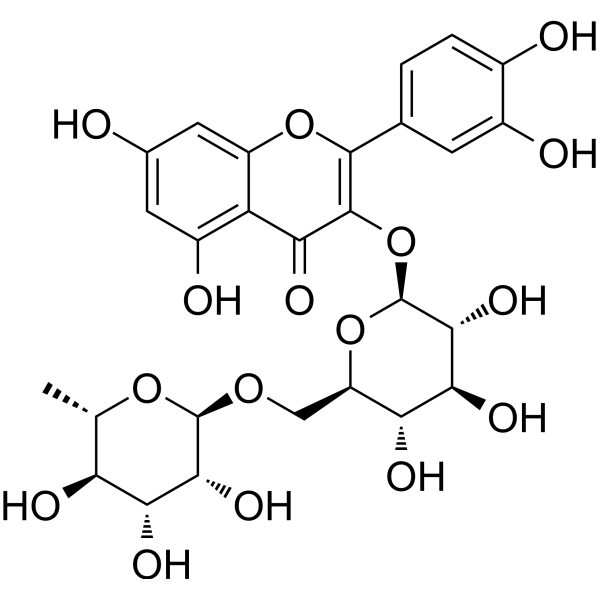Rutin, also known as quercetin-3-O-rutinoside, is a bioflavonoid that is found in various plants, including buckwheat, citrus fruits, and tea. It is a type of antioxidant that has numerous health benefits and is widely used in traditional medicine. Rutin has been studied extensively, and research has shown that it has a range of potential benefits for human health.

One of the most significant benefits of rutin is its antioxidant properties. Antioxidants are substances that protect cells from damage caused by free radicals, which are unstable molecules that can harm cells and contribute to the development of chronic diseases. Rutin acts as an antioxidant by neutralizing free radicals and preventing oxidative stress, which is a major contributor to the development of many diseases.
Another benefit of rutin is its anti-inflammatory properties. Inflammation is a natural response to injury or infection, but chronic inflammation can contribute to the development of a range of diseases, including heart disease, diabetes, and cancer. Rutin has been shown to reduce inflammation in the body by inhibiting the production of inflammatory molecules.
Rutin has also been studied for its potential to improve cardiovascular health. It has been shown to lower blood pressure, reduce cholesterol levels, and improve blood flow, which can help prevent the development of heart disease. In addition, rutin has been shown to improve the function of the endothelium, which is the inner lining of blood vessels. This can help prevent the formation of blood clots and reduce the risk of heart attack and stroke.
In addition to its cardiovascular benefits, rutin has been studied for its potential to improve cognitive function. It has been shown to improve memory and learning in animal studies, and may also have neuroprotective properties. Rutin has been shown to protect against the damage caused by oxidative stress in the brain, which may help prevent the development of neurodegenerative diseases such as Alzheimer’s and Parkinson’s.
Rutin has also been studied for its potential to prevent and treat diabetes. It has been shown to improve glucose metabolism and insulin sensitivity, which can help prevent the development of diabetes and improve glycemic control in those who already have the condition. Rutin may also have anti-diabetic properties by reducing inflammation and oxidative stress, which are both important contributors to the development of diabetes.
In addition to its health benefits, rutin is also used in the cosmetics industry. It has been shown to have anti-aging properties and is often used in skincare products to help reduce the appearance of fine lines and wrinkles. Rutin is also used in hair care products to help strengthen hair and prevent hair loss.
Despite its potential benefits, rutin can cause side effects in some people. These may include stomach upset, headache, and allergic reactions. Rutin may also interact with certain medications, so it is important to speak with a healthcare provider before taking rutin supplements.
In conclusion, rutin is a bioflavonoid with numerous potential health benefits. It has antioxidant and anti-inflammatory properties and has been shown to improve cardiovascular health, cognitive function, and glycemic control. Rutin is also used in the cosmetics industry for its anti-aging and hair-strengthening properties. While rutin is generally considered safe, it can cause side effects in some people and may interact with certain medications. As with any supplement, it is important to speak with a healthcare provider before taking rutin.
